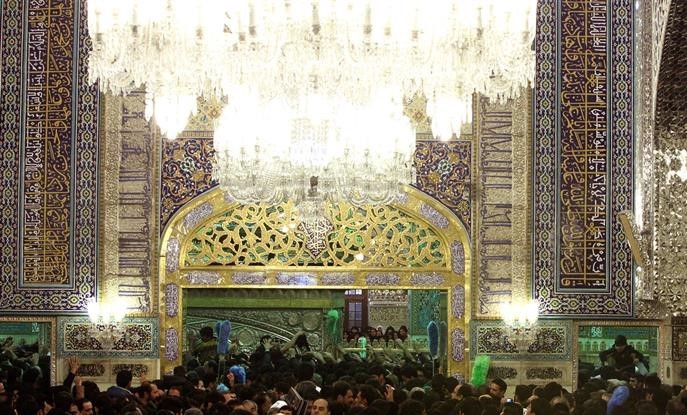
RNA – A group of Yemeni soldiers visited the Quran, the carpet, and the central museums in the Holy Shrine of Imam al-Ridha as well as the Supreme Leader’s donations treasury.
“It is the first time I am travelling to Iran and the Holy Shrine. This spiritual holy shrine is one of the most elegant pilgrimage places in the world that gives man a sense of security and tranquility,” Dr. Mustafa said.
On the sidelines of visiting the Quran museum, he remarked, “I saw in this museum for the first time the Qurans scribed by the Household of the Apostle of God. Thanks be to God that the Holy Shrine of Imam al-Ridha preserves this precious treasury in the best way through advanced facility.”
“The patterns and designs and the exquisite objects in museums of the Holy Shrine of Imam al-Ridha display the great Iranian culture to the visitors,” he continued.
Dr. Mustafa described the people of Mashhad as hospitable and friendly people and said, “The souls of Iranians have been mingled with that of the Household of the Apostle of God. Pilgrims may not feel strange and lonely among these compassionate and kind people.”
Dr. Ali, the cultural director of the group that has attended the Holy Shrine for the third time said, “Attending in the house of the son of the Prophet drives one closer to God.”
Referring to cultural activities of the Holy Shrine of Imam al-Ridha, he added, “Holding a variety of programs for non-Iranian pilgrims in separate courtyards and porticos indicates the veneration of the Holy Shrine of Imam al-Ridha to Arabic-speaking brothers.”
Pointing to the safety and security in Iran, Dr. Ali said, “The Islamic Republic of Iran has been and will be always powerful and strong, thanks to presence of leaders such as Imam Khomeini and Ayatollah Khamenei.”
“These wise leaders are divine gifts to Iran. The second secret of Iranians’ victory and success in the past and present lies in their obedience to these great leaders and supporting them,” he continued.
It is notable that the group enjoyed the cultural programs prepared by Management of Non-Iranian Pilgrims Affairs in the Dar al-Rahmah portico.
R111/112/E